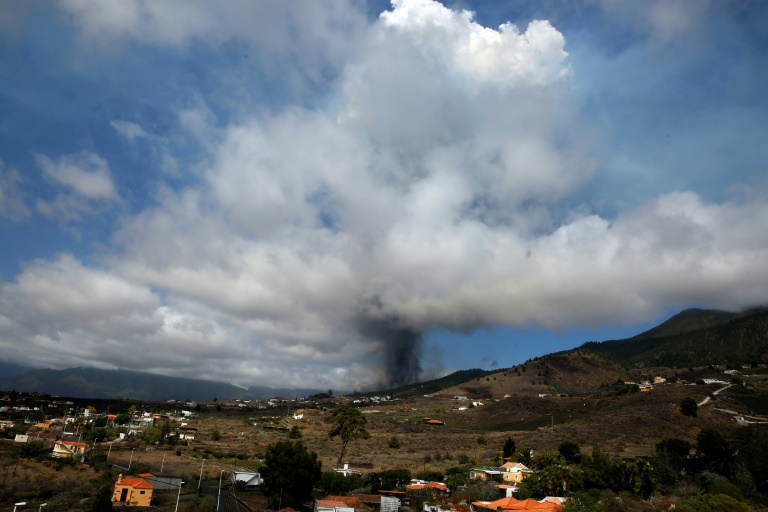The Cumbre Vieja volcano erupted on Spain’s Canary Islands on Sunday spewing out lava, ash and a huge column of smoke after days of increased seismic activity, sparking evacuations of people living nearby, authorities said.
Cumbre Vieja, which last erupted 50 years ago, straddles a ridge in the south of La Palma island, home to around 80,000 people.
“The eruption started in the Cabeza de Vaca zone, in El Paso,” the local government said on its Twitter account, adding that evacuations have started in the areas closest to the volcano.
“People are asked to be extremely careful and to stay away from the eruption zone to avoid needless risk,” the government added.
The head of the Canaries region, Angel Victor Torres, said the zone was forested and “sparsely populated”.
State television ran live coverage of the eruption during the late afternoon.
Spain’s Prime Minister Pedro Sanchez announced he would head to the scene later Sunday “to follow developments”.
“Given the situation La Palma island, the head of government has delayed his scheduled departure today for New York,” to attend the UN General Assembly, a statement said.
“All the services are prepared to act in a coordinated fashion,” Sanchez wrote on Twitter.
The interior ministry said 200 members of the security services had been mobilised with a helicopter as back up.
– Thousands of tremors –
Experts had been keeping a close watch on the volcano after observing an upsurge in seismic activity and magma displacements.
An earthquake swarm under La Cumbre Vieja began a week ago and since then there had been thousands of tremors, the strongest with a magnitude of nearly four, the Involcan vulcanology institute said.
An earthquake swarm is a sequence of seismic events occurring in one place within a relatively short period of time.
The authorities had on Tuesday raised the alert level from green to yellow, the second of four levels, in certain areas around the volcano, meaning civil protection officials had to inform the public “to take precautions ahead of a possible volcanic eruption”, under an emergency plan.
Involcan had reported a “significant ground deformation” as a result of “a small volume” of new magma flowing into the reservoir underneath the volcano, which amounted to 11 million cubic metres.
“Undoubtedly the current seismic swarm represents a significant change in the activity of the Cumbre Vieja volcano and is related to a process of magmatic intrusion beneath the island of La Palma,” it said.
The Canaries, an archipelago of seven islands off of northwestern Africa, last recorded a volcanic eruption in 2011, undersea off El Hierro island.
Cumbre Vieja erupted twice in the 20th century — in 1971 and in 1949.









